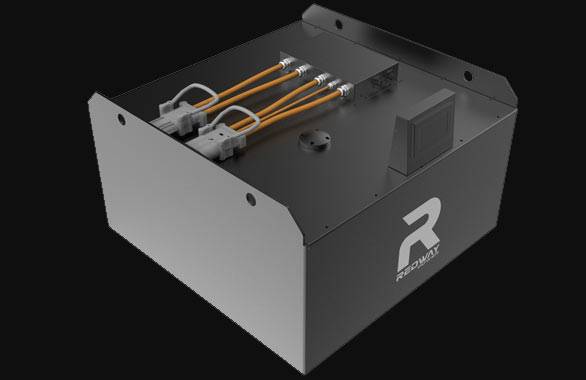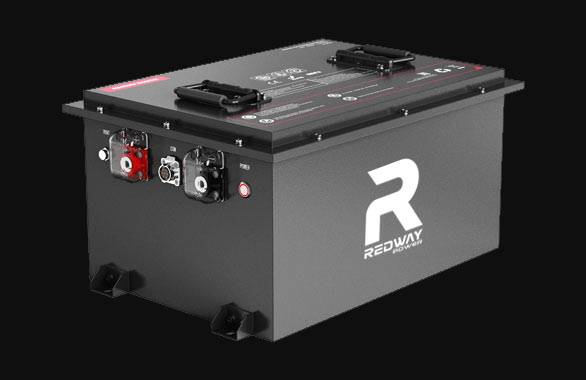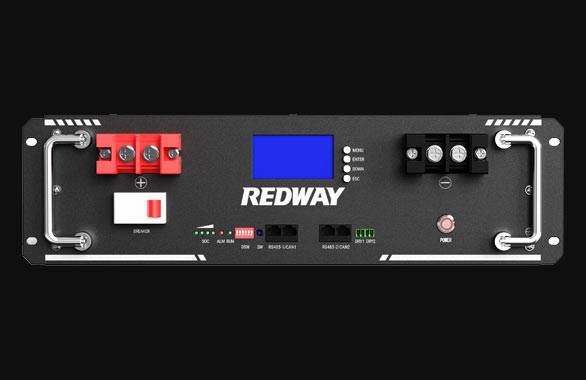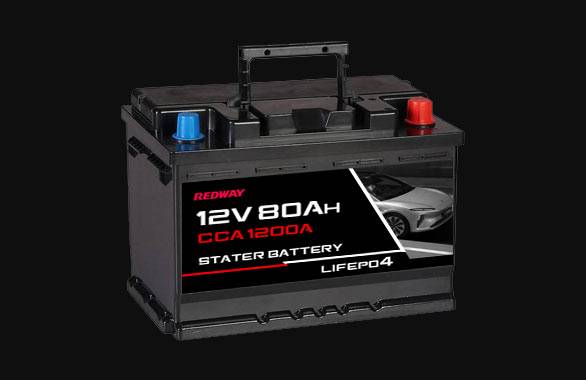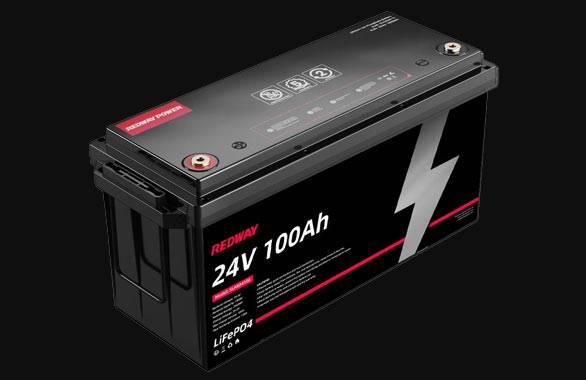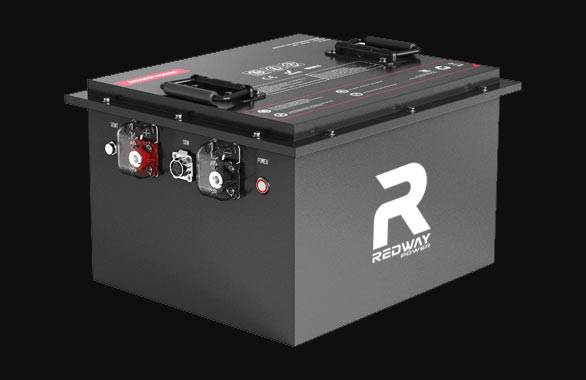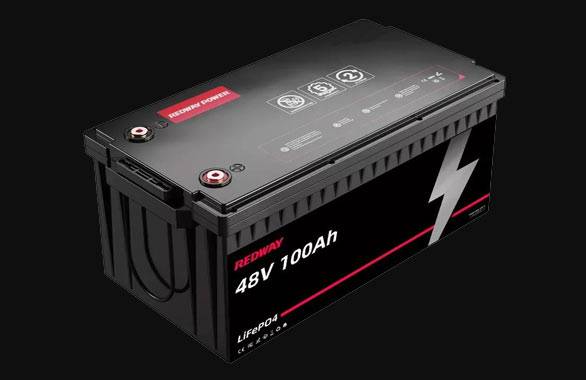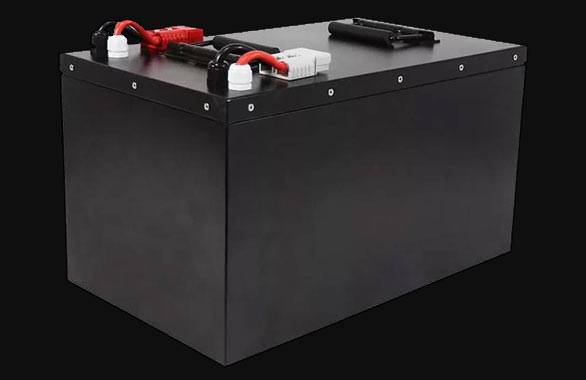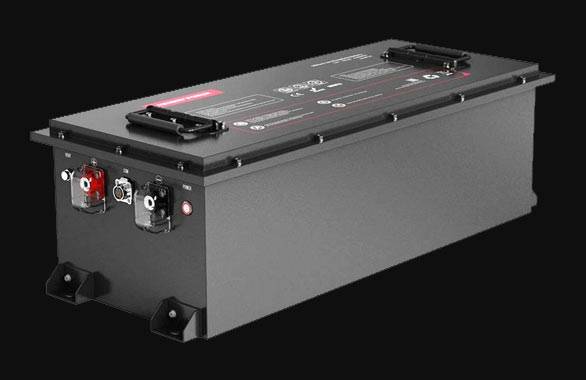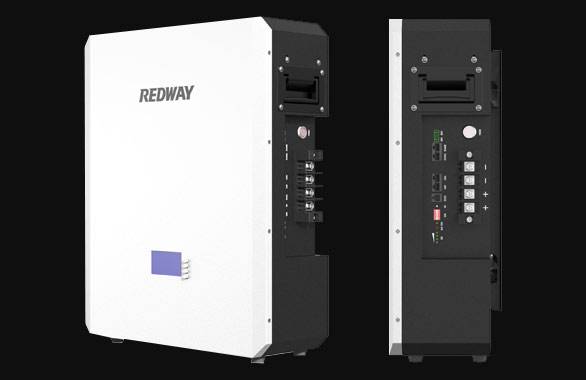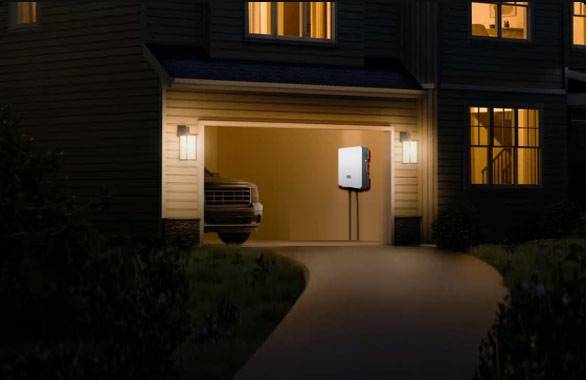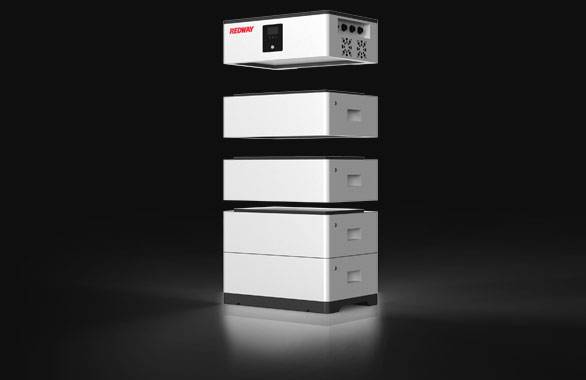- Forklift Lithium Battery
- Golf Cart Lithium Battery
- Rack-mounted Lithium Battery
51.2V 100Ah Rackmount LiFePO4 Battery
8000 times (80% DOD 0.5C)
Optional SNMP for TELECOM - Car Starter Battery
- 12V LiFePO4 Battery
12V 150Ah Lithium RV Battery
Bluetooth App | Self-heating
LiFePO4 | Group 31
UL 1642 | IEC 62619 - 24V LiFePO4 Battery
- 36V LiFePO4 Battery
- 48V LiFePO4 Battery
- 60V LiFePO4 Battery
60V 100Ah Lithium Battery (AGV, AMR, LGV)
Peak Discharge Current 400A
500 x 298 x 349 mm - 72V~96V LiFePO4 Battery
72V 100Ah Lithium Golf Cart Battery
Peak Discharge Current 315A (10S)
740 × 320 × 246 mm - Wall-mounted Lithium Battery
51.2V 100Ah 5kWh
Wall-mounted Battery532 x 425 x 170 mm / LiFePO4
>8000 Cycles (80% DOD 0.5C)
RS485 / CAN-bus
for Solar Home ESS - Home-ESS All-in-One
51.2V 32kWh
All-in-On HESS SystemPowerAll
51.2V / LiFePO4
>8000 Cycles (80% DOD 0.5C)
RS485 / CAN-bus / WiFi
All-in-One for Home ESS
What Are the Best 48V Battery Options for Your Application?
A 48V battery system is a versatile and efficient power source widely used in electric vehicles, renewable energy storage, and backup power systems. These batteries come in various chemistries like LiFePO4 and lithium-ion, offering a balance of high energy density, long lifespan, and safety. Selecting the right 48V battery depends on your specific needs, performance criteria, and reliability expectations.
What is a 48V battery and how does it function?
A 48V battery is an assembly of multiple cells connected in series to provide a nominal voltage near 48 volts. It stores energy chemically and delivers electrical power on demand, commonly powering electric motors, renewable systems, and backup devices. This voltage level balances safety and performance, enabling efficient power delivery with manageable electrical complexity and improved system durability.
48V batteries function by converting stored chemical energy into electrical energy. The series arrangement of cells provides higher voltage output than smaller battery systems, while remaining safer and easier to manage than high-voltage configurations over 100 volts. This voltage balance reduces current load, prevents wiring losses, and enhances energy efficiency in applications such as EVs and solar energy storage.
What are the key specifications of 48V batteries?
Key 48V battery specifications include nominal voltage (~48V), capacity (usually 20 Ah to 200+ Ah), and cell chemistry (LiFePO4, lithium-ion, lead-acid). Important attributes are cycle life (2000–5000 cycles), weight, charge/discharge rates, and physical dimensions (which vary by model). These specifications determine how the battery performs in terms of power delivery, longevity, and application suitability.
Specifications chart of a representative 48V battery:
| Specification | Typical Range |
|---|---|
| Nominal Voltage | Approximately 48 volts |
| Battery Chemistry | LiFePO4, Lithium ion, Lead-acid |
| Capacity Range | 20 Ah to 200+ Ah |
| Cycle Life | 2000 to 5000 cycles |
| Weight | Varies, lithium types lighter than lead-acid |
| Charge/Discharge Rate | High continuous current capability |
| Dimensions | Model and use dependent |
These specifications guide buyers to align battery capabilities to application requirements such as power demands, operational time, and environmental constraints.
Which types of 48V batteries are most commonly used?
The predominant 48V battery types include LiFePO4, lithium-ion (NMC/NCA), and lead-acid varieties. LiFePO4 is favored for safety, thermal stability, and longer cycles. Lithium-ion batteries provide higher energy density but require careful thermal management. Lead-acid batteries, older technology, are heavier and have shorter lifespan but remain cost-effective for some applications.
LiFePO4 chemistry stands apart in terms of stability and safety, making it the preferred choice for heavy-duty and renewable energy uses. Lithium-ion batteries, while energy-dense, entail stricter management protocols. Lead-acid batteries are bulkier and less efficient, largely replaced by lithium-based options in modern 48V systems.
Where are 48V batteries typically applied?
48V batteries are used extensively across electric vehicles such as scooters, golf carts, and mild hybrids. They also power renewable energy storage systems like solar arrays, backup power supplies for telecom and data centers, marine and RV power systems, and industrial machines including floor cleaning equipment. Their voltage level suits moderate power requirements with improved efficiency.
These batteries provide a practical balance between power output and safety, enabling applications with moderate energy needs to achieve reliable, long-lasting operation. Their integration into hybrid EVs and solar setups illustrates their adaptability and growing market presence.
How do 48V batteries compare to other voltage battery systems?
Compared to 12V and 24V systems, 48V battery packs deliver more power at lower current, reducing wiring thickness and energy losses. Compared to high-voltage systems (>96V), 48V systems offer simpler safety management, easier maintenance, and reduced costs. This voltage “sweet spot” delivers efficiency, sufficient power, and enhanced system safety for diverse applications.
48V systems reduce demands on cabling and connectors versus lower voltage setups, while avoiding the complexity and hazards of high-voltage battery packs. This efficiency makes 48V ideal for midsize vehicle applications, renewable energy storage, and backup power.
How does a Battery Management System (BMS) enhance 48V battery safety and reliability?
A Battery Management System monitors individual cell voltages, currents, and temperature to prevent overcharging, deep discharging, short circuits, and thermal runaway. It balances cell voltage, ensuring uniform charge/discharge cycles that extend battery life and improve performance. For 48V batteries, the BMS is critical for safe, efficient, and reliable operation in demanding applications.
By managing electrical and thermal parameters in real time, the BMS safeguards the battery pack against damage and operational failure. Proper BMS integration is fundamental to meet safety certifications and maximize the battery’s service life and reliability.
How do you select the best 48V battery for your needs?
Select a 48V battery by evaluating voltage and capacity requirements, discharge rates, cycle life, and environmental conditions. Choose lithium chemistries such as LiFePO4 for safety and longevity or lithium-ion for higher energy density. Confirm manufacturer certifications, warranty terms, and compatibility with your system. OEMs like Redway Power provide tailored solutions to fit industrial and commercial applications.
Matching the battery’s electrical characteristics to application demands ensures optimal performance. Consider intended load profiles, charge/discharge cycles, and environmental factors like temperature and vibration. Redway Power’s custom OEM service can optimize 48V battery packs according to specific use cases.
What environmental benefits do 48V lithium batteries offer?
48V lithium batteries, particularly LiFePO4, are environmentally friendly due to non-toxic constituents, longer lifespan reducing waste, and better recycling potential. They consume less energy over their life cycle compared to lead-acid batteries and help lower the carbon footprint of energy storage systems. These eco-benefits promote sustainable energy transitions.
Their stable chemistry reduces hazardous leaks and disposal issues, enhancing overall environmental safety. Deploying 48V lithium battery systems supports green initiatives in transportation, renewable integration, and stationary energy storage.
How can 48V batteries be integrated with solar and renewable energy systems?
48V batteries can efficiently store surplus electricity generated by solar panels during peak sunlight and release it during low generation or high demand. Their voltage optimizes energy transfer efficiency, minimizing losses in wiring and inversion. Integrated with controllers and inverters, they provide scalable, reliable renewable energy storage for off-grid and grid-tied installations.
Advanced battery management ensures smooth coordination with solar system components, enabling intelligent charge-discharge cycles and maximizing system uptime and lifespan.
What safety features and certifications matter for 48V battery packs?
Critical safety features include overcharge, over-discharge, short circuit, and thermal protection. Cell balancing and fault detection also enhance safety. Certifications such as UL 2580, UN 38.3, and ISO 9001 are essential indicators of compliance with international safety and quality standards, assuring end-users of product reliability and security.
Vendors like Redway Power utilize Manufacturing Execution Systems (MES) for rigorous quality control and compliance assurance, producing 48V packs that meet stringent global regulations. Such certifications reduce risk and insurance costs in operational deployments.
Who is Redway Power and what expertise do they bring to 48V battery manufacturing?
Redway Power is a leading Chinese lithium battery pack OEM with over 13 years of experience. They specialize in custom manufacturing of lithium battery solutions including 48V packs for applications spanning forklifts, golf carts, telecom, renewable energy, and more. Their ISO 9001:2015 certification and MES-driven production ensure consistent quality, safety, and innovation in battery technology.
Redway Power’s deep industry expertise allows them to engineer batteries with optimal chemistry, capacity, and form factors tailored to complex customer needs, making them a trusted partner in the global battery marketplace.
Redway Power Expert Views
“48V battery technology offers an optimal blend of power and safety, crucial for modern applications,” notes a Redway Power expert. “Our precision manufacturing and stringent testing protocols ensure reliability and longevity in every pack. Redway Power’s commitment to quality and customization empowers OEM clients to meet evolving performance demands with confidence and sustainability.”
Conclusion
48V battery systems are essential enablers of efficient, safe, and versatile power delivery in markets from electric vehicles to renewable energy storage. Their balanced voltage, combined with robust chemistries and intelligent management, offers significant advantages over lower and higher voltage alternatives. Partnering with industry leaders such as Redway Power guarantees access to high-performance, reliable 48V battery solutions tailored to your precise application requirements.
FAQs
Q1: What is the main difference between 48V LiFePO4 batteries and lithium-ion batteries?
A1: LiFePO4 batteries provide superior thermal stability, longer cycle life, and enhanced safety, while lithium-ion batteries offer higher energy density but require more careful thermal management.
Q2: Can a 48V battery be used in solar energy storage?
A2: Yes, 48V batteries are well-suited to solar energy storage, offering efficient voltage levels that integrate smoothly with solar inverters and charge controllers.
Q3: How long does a 48V lithium battery typically last?
A3: Lifespan varies by chemistry and use, but typically 48V lithium batteries last between 2000 and 5000 charge cycles, often translating into several years of practical service.
Q4: What role does Redway Power play in the 48V battery market?
A4: Redway Power is a trusted OEM that custom-manufactures 48V lithium battery packs, delivering high quality, safety, and innovation backed by 13 years of industrial expertise.
Q5: Are 48V batteries safe for indoor use?
A5: With an integrated Battery Management System and proper certifications, 48V lithium batteries are safe for indoor use in residential, commercial, and industrial environments.


